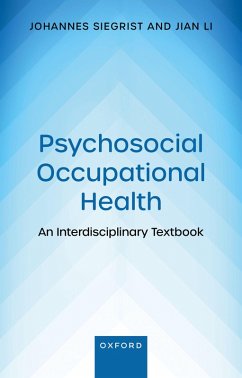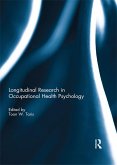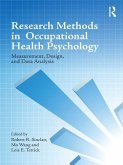Work and employment are central to people's lives, health, and wellbeing. Through participation in the labour market, income and related life chances are improved, social protection and security are strengthened, and important psychological and social needs are met, such as striving for skill development, autonomy, social recognition, and social belonging. Yet, globally, only a minority of working people experience these favourable conditions. In developing countries, substantial parts of the population are excluded from paid work, or are confined to informal, poor, and dangerous work. In developed countries, adverse working and employment conditions contribute to a burden of disease. With the advent of economic globalisation and ground-breaking technological innovations, new occupational health risks have emerged, such as stressful high psycho-mental work pressures, increased job insecurity and flexibility, and widely prevalent social tensions and conflicts. These risks are aggravated by two global challenges, the COVID-19 pandemic and climate change. How can professionals who are committed to occupational health cope with these challenges? This book provides a comprehensive review of scientific evidence dealing with the far-reaching changes and challenges of modern work and its impact on health. It extends conventional occupational medicine by introducing essential knowledge on the psychosocial dimensions of work and health, bridging social and behavioural sciences with biomedical research. Opening chapters cover the conceptual and historical background of the field, followed by a section on the theoretical and methodological bases of knowledge. The next part looks at empirical evidence on psychosocial work-related health effects derived from epidemiologic investigations and studies, with a focus on cardiovascular and metabolic diseases and mental disorders. The fourth part addresses the effects of disease and disability on work and employment opportunities and related coping efforts. Finally, options of prevention and health promotion at the level of organisation and of national labour and social policies are discussed. Written for future and current occupational health professionals, students and researchers with an interest or specialisation in occupational health, and practitioners and diverse stakeholders dealing with these topics, this book serves as a source of scholarly evidence, shaping knowledge and skills to address new challenges and promote a future economy of decent, sustainable, and healthy work.
Dieser Download kann aus rechtlichen Gründen nur mit Rechnungsadresse in A, B, BG, CY, CZ, D, DK, EW, E, FIN, F, GR, HR, H, IRL, I, LT, L, LR, M, NL, PL, P, R, S, SLO, SK ausgeliefert werden.









